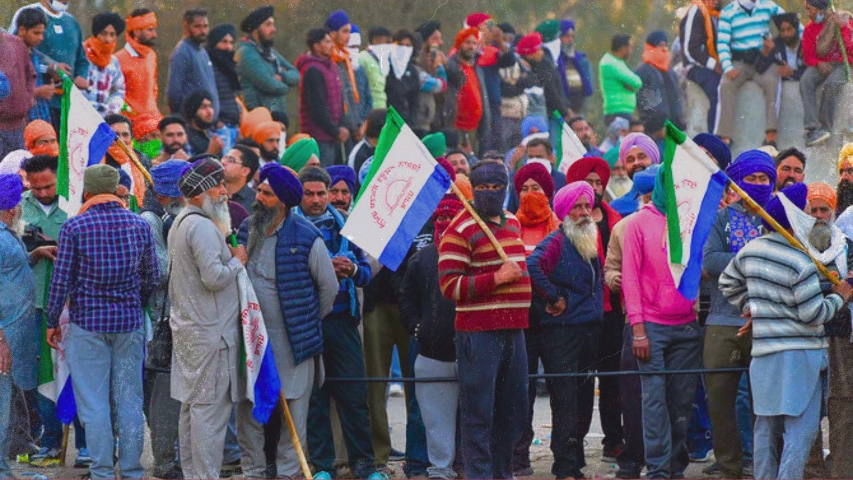
TRENDING: ALL THAT YOU NEED TO KNOW ABOUT MSP
by Editorial Desk February 24 2024, 12:00 am Estimated Reading Time: 2 mins, 45 secsExplainer on Minimum Support Price (MSP) as a legal guarantee using Swaminathan formula, and what is being demanded by the farmers of India, reported by The Daily Eye #Newsdesk
What is the Minimum Support Price (MSP)? The MSP is the price at which the government promises to procure/buy crops from farmers if the market price falls below it. The purpose is to provide price stability for farmers by ensuring that they receive a minimum remuneration above their costs of cultivation. The Swaminathan Commission had recommended an MSP of 50% over the costs of cultivation (Measure C2, which includes input costs, costs of capital and rental income of land), to provide a reasonable income for farmers.
Why do farmers need this? Farming in India is facing a major crisis; costs of cultivation have increased over time while crop prices have not increased as much. Factors such as droughts, climate change, increasing input prices, demonetization, the GST rollout, lockdowns, and stagnant rural demand are making agriculture unsustainable. Volatile crop prices add an additional risk to farmers.
Most farmers in India have small holdings (85% have > 3 acres of cultivable land), which causes them to face difficulties in accessing formal credit, access to affordable inputs and irrigation, R&D support to deal with changing conditions, storage, etc. All these factors have meant that they are forced to sell their produce immediately after harvest even if the price is too low.

What can the MSP do? The MSP can provide price stability for farmers, who are currently exposed to volatile global market price fluctuations as well as changing conditions in the domestic market. The government can use the MSP to incentivize the cultivation of certain crops, such as food grains, which are essential for food sovereignty, leading to crop diversity.
Why is a legal guarantee necessary? The current system of public crop purchase is designed to purchase basic food grains mainly rice and wheat for the public food distribution system, to give food security under the National Food Security Act. It does not ensure that farmers receive a remunerative price for their crops, because the MSP is often set lower than the Swaminathan formula.
Providing a legal MSP will require the government to intervene whenever market prices fall below a pre-defined level. It is done in cases of excess production and oversupply or a price collapse due to international factors. It does not require the government to buy all the produce, only that amount, which is required to create an upward price pressure to stabilize market prices at the MSP level. The mechanism to do this will vary across situations, states and crops.
What will it cost the government? There has been a lot of misinformation claiming it will cost the government 10 lakh crore or more - this is completely misleading. Market intervention is needed only when there is price collapse and only for the commodity for which it occurs. If the government has a mechanism to sell the grain procured in the open market or the export market the costs can be easily recovered.
The BJP led government had already promised this to the farmers when they called off their agitation two years ago. This was one of the “Modi ki guarantee”, which is being popularized by the mainstream media across India.




-173X130.jpg)

-173X130.jpg)
-173X130.jpg)
-173X130.jpg)
-173X130.jpg)
-173X130.jpg)
-173X130.jpg)